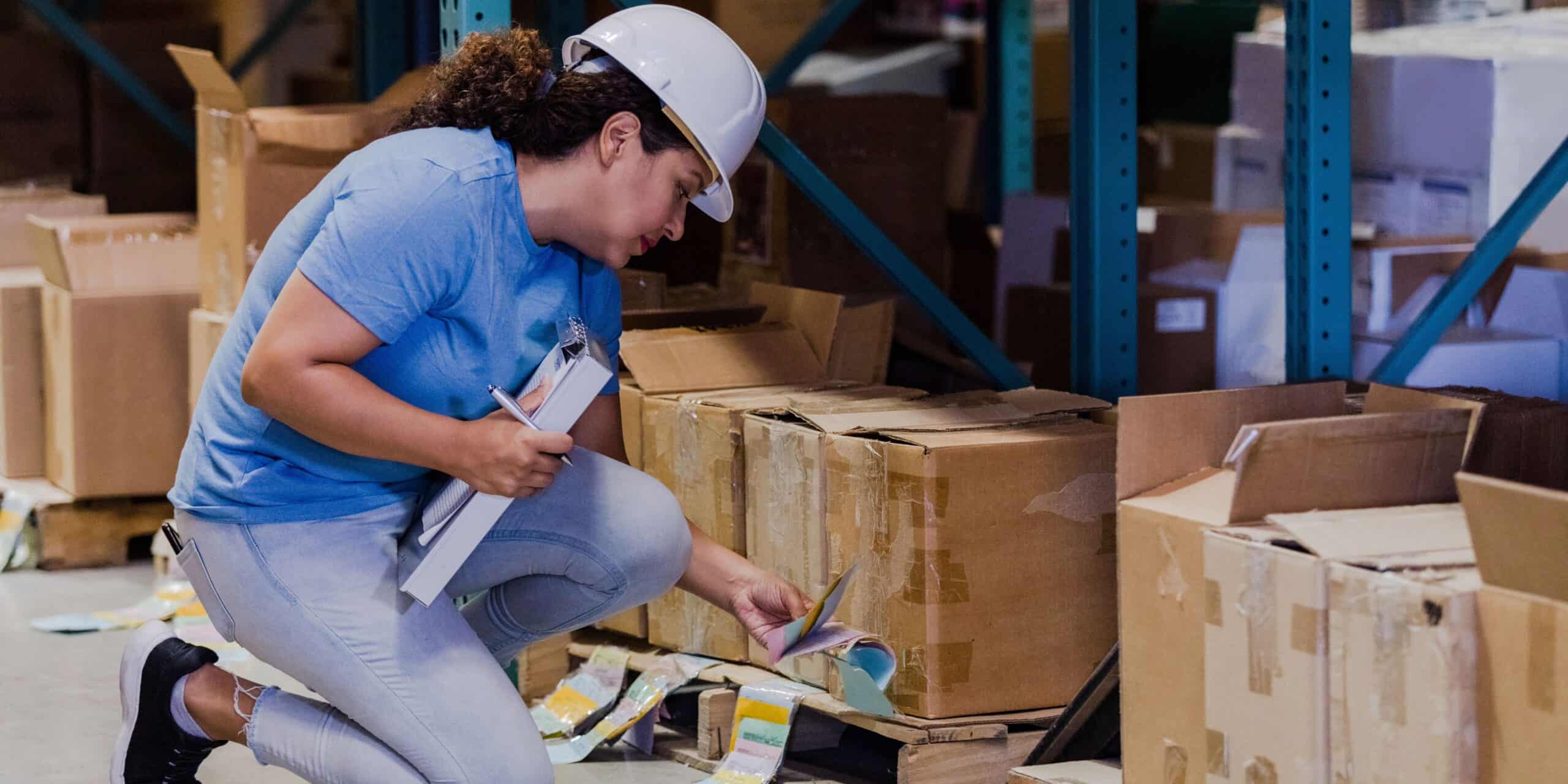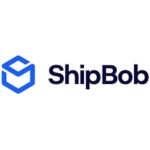In-house fulfillment makes sense for entrepreneurs who want complete control over inventory and warehouse operations or brands that offer a fully customizable experience. If this describes you, you may be concerned with streamlining in-house processes to increase efficiency, improve accuracy, and minimize labor costs via automation of manual processes. Fortunately, ShipBob has options to support companies considering in-house fulfillment solutions.
In this ShipBob review, learn the pros and cons of in-house fulfillment, and find out if the solution may best meet your needs.
What is in-house fulfillment?
In-house fulfillment, or self-fulfillment, is when brands manage order fulfillment themselves vs. outsourcing fulfillment to a third-party logistics provider. In-house fulfillment is typically broken down into two categories:
- Small businesses that hand pack everything in their homes and take products to be shipped out personally.
- Brands that have their own warehouse(s), where carriers come to you to pick up orders each day.
As businesses grow their fulfillment operations, they may need more efficient processes to meet customer demand. That’s where ShipBob’s WMS and in-house fulfillment solution comes into play.
Best for
In-house fulfillment can be a good solution in many cases. It’s best for businesses that:
- Have their own warehouse(s)
- Are shipping between 100 and 10,000 orders per day
- Want to control exceptional post-purchase processes and create a personalized customer experience
Pros
In-house fulfillment offers a wide range of benefits. The pros include:
- Full order visibility: If you want to manage the entire order fulfillment process, including close control of inventory and order volume, in-house fulfillment offers full transparency.
- Customization capabilities: In-house fulfillment allows companies to customize each order themselves. If a product or packaging is individualized, for example, this type of fulfillment is essential.
- More control over supply chain: For merchants with bespoke/made-to-order products or who keep manufacturing in-house, the convenience and control of a WMS/in-house fulfillment operation is crucial.
- Easier to pivot: When you manage your own warehouses, it gives you more control over your products and allows you the ability to pivot when necessary.
Cons
In-house fulfillment won’t work for every company — past a certain phase of growth, the order volume can become too large to manage solely in-house. Here are a few other disadvantages.
- Higher costs: While self-fulfillment can be cost-effective in some ways, you might end up spending more on overhead costs associated with rent and labor, along with additional hidden expenses. Be sure to account for the time and energy your team spends fulfilling orders and managing shipping activities in house.
- Lack of space: You can start an e-commerce business in a small space, but storage can become an issue as you grow beyond your warehouse. Even if you have a warehouse, you may outgrow that space (or never grow into it, causing you to overspend on overhead and storage).
- Slower delivery times: With in-house fulfillment, you’re competing with large order fulfillment centers and warehouses. The additional day or two in delivery times can cause some customers to choose other companies.
How can ShipBob help you scale in-house fulfillment?
ShipBob can help you scale in-house fulfillment through Merchant Plus, its warehouse management system (WMS) for brands with their own warehouse. This all-in-one WMS, OMS, IMS, and reporting platform enables you to centralize real-time inventory, shipments, and analytics across online and offline sales channels for exceptional control over in-house operations.
With ShipBob’s in-house fulfillment support, your brand gets access to ShipBob’s warehouse management software, transportation networks, and fulfillment experts, along with the optional hybrid possibility to use ShipBob’s robust network of warehouses. With ShipBob, you can launch your self-fulfillment operations with world-class logistics support to offer exceptional service and growth.
ShipBob Merchant Plus pricing
ShipBob Merchant Plus pricing is customized per merchant. They create pricing and onboarding plans based on your unique needs, including order volume, warehouse size, number of warehouses, and your personalized business model.
ShipBob in-house fulfillment FAQ
How does ShipBob facilitate in-house fulfillment? Here you’ll find some of the most frequently asked questions about ShipBob’s in-house order fulfillment services.
What are the common challenges?
Common challenges of self-fulfillment include a lack of storage space, disorganized inventory, using multiple tools to manage various jobs, managing orders, and details associated with shipping such as printing labels and slower delivery times. In some cases, there may be higher overall costs. Without order fulfillment software, there may also be additional inefficiencies and reduced bandwidth for order fulfillment optimization.
ShipBob’s support for in-house fulfillment solves these problems. In addition to exceptional software for oversight, your company gains access to ShipBob’s fulfillment experts and even the seamless ability to tap into ShipBob’s fulfillment centers where you don’t have a warehouse in other countries like Canada, the U.K., mainland Europe, and Australia. While it’s in-house fulfillment, your company has the backing of ShipBob’s exceptional logistic solutions. You’ll gain the advantages of self-fulfillment like full order visibility, more control of the supply chain, customizable capabilities, and the ability to pivot whenever necessary.
When is it best to outsource fulfillment?
The right time to outsource fulfillment depends on your industry and order volume. If you decide to offer same- or next-day delivery, outsourcing fulfillment can ensure on-time shipments. And when order volume becomes too great to manage in-house, it could be time to explore a hybrid approach. Finally, if you are pressed for time, outsourcing to companies like ShipBob can save valuable time for less than the realistic total cost of self-fulfillment. A hybrid fulfillment approach allows you to expand locally and globally providing lower transit times and costs.
Outsourced fulfillment solutions
For those who want fully outsourced solutions, ShipBob’s 3PL services offer comprehensive solutions. ShipBob fulfillment offers fulfillment solutions for all business types. You can start outsourcing fulfillment as a startup, and it will be able to help you grow seamlessly.
In-house fulfillment solutions
However, some brands will never outsource fulfillment for their needs. ShipBob also has solutions for brands that choose to keep order fulfillment in-house through Merchant Plus. ShipBob’s WMS helps companies grow through their own customized approach and exceptional support.
Hybrid fulfillment solutions
Merchant Plus is the only WMS platform that provides a blended fulfillment option for improved efficiency when scaling. ShipBob has over 40+ warehouses around the U.S., Europe, Australia, and Canada, providing access to capacity for many merchants.
You can test demand for your products in new global markets efficiently and economically. Outsourcing can help prevent stockouts of your most successful SKUs and help you fulfill orders from multiple regions to reduce shipping expenses and transit times.
Is ShipBob outsourced fulfillment suitable for small businesses?
ShipBob has order fulfillment solutions for businesses of all sizes. ShipBob fulfillment offers services for startups, with the support and prices to help small growing businesses. It also has the experience and resources to turn around high product volumes quickly as businesses grow.
ShipBob’s fulfillment includes partners for specific needs, custom pack services, nationwide warehouses and carrier cost savings without hidden fees. They offer pick and pack solutions for businesses of all sizes to free up time for innovation and expansion.
Is in-house fulfillment the same as drop shipping?
In-house fulfillment is different from drop shipping. In drop shipping, a seller arranges for orders to be sent to customers directly from suppliers or manufacturers. In these instances, sellers don’t have to stock or ship inventory. For example, most books on Amazon.com are drop shipped from the printer or publisher, not from an Amazon warehouse.
In contrast, in-house fulfillment refers to sellers maintaining their inventories and shipping orders themselves. They don’t rely on external fulfillment services or on-demand warehouses.
ShipBob fulfillment solutions for all businesses
ShipBob fulfillment can streamline order fulfillment and give you a leg up in a competitive business market. While in-house fulfillment may work for some time with excellent software and streamlined operations, ShipBob offers scalable solutions for brands that need to fulfill orders. Whether you want to outsource, fulfill in-house, or take a hybrid approach, ShipBob can help.
We are excited to announce the launch of move.freightwaves.com, a revolutionary resource designed to transform how consumers choose auto-shipping companies. Check it out today!



